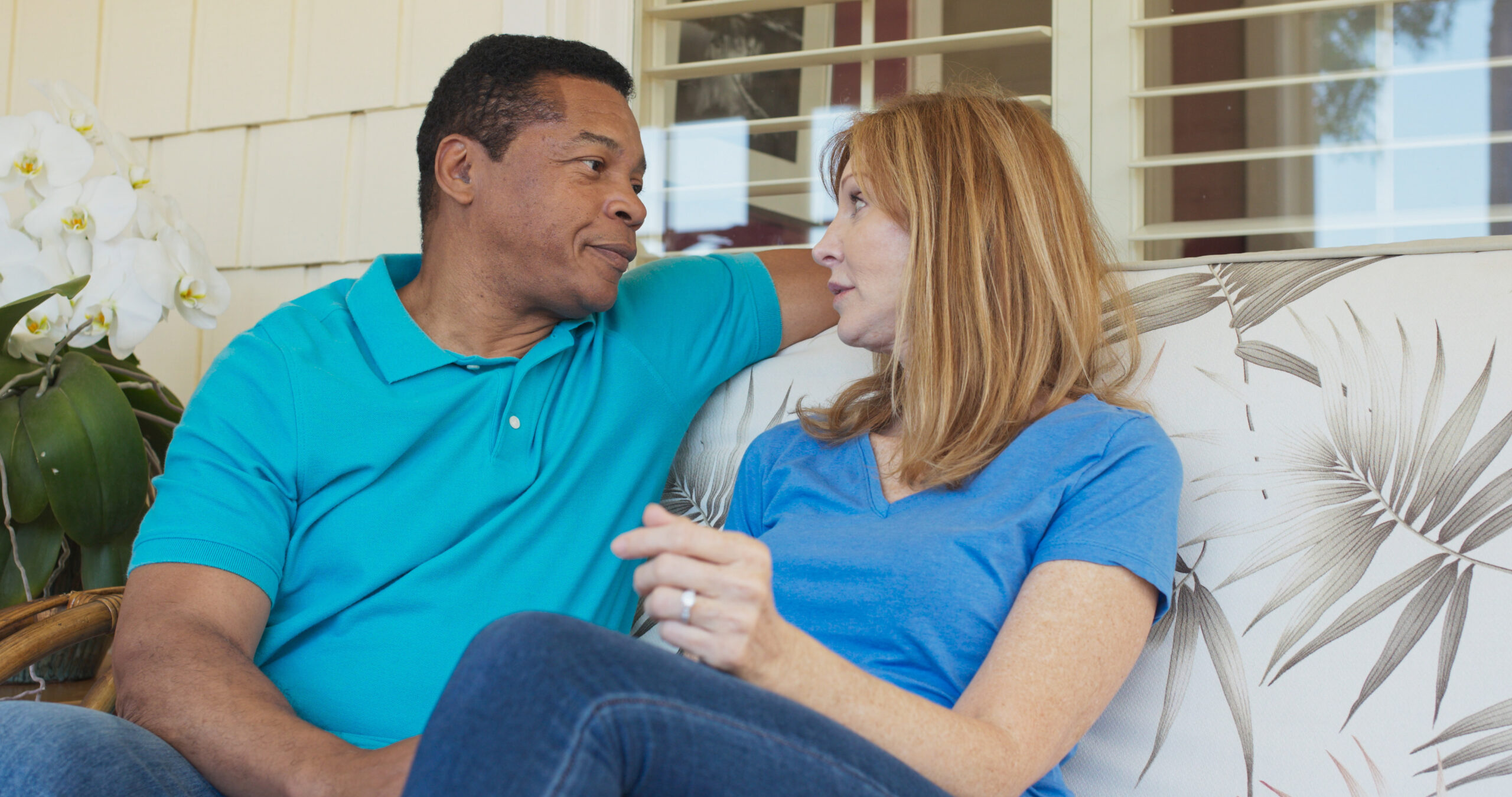Couple Communication: Soften Your Startup

With all the additional time together the quarantine is presenting, it is important to have couple and family conversations about what each person needs. In many cases, roles and demands on people have changed, so understandably, their needs would change as well. One of the most important factors that will determine if this conversation will be successful, is how it starts. In fact, statistics tell the story: 96 percent of the time you can predict the outcome of a conversation based on the first three minutes of the fifteen-minute interaction.
The “Harsh Start-Up”
John Gottman, couple’s therapist and researcher, describes “Harsh Start Up” as the start of a conversation that leads with criticism, negativity, sarcasm, or contempt. Not only our words can make the startup harsh; nonverbal cues—tone, facial expression, body language, volume, can, too. In fact, our brain recognizes nonverbal cues more quickly than words. The tone will alert us that someone is upset with us before our brain has a chance to process the words as to why he/she is upset. As soon as such a tone is recognized, we go into “protective mode,” ready to defend ourselves or flee this negative situation.
The “Soft Start-Up”
A “Soft Start Up, on the other hand, is when we enter an interaction with a desire to understand, seek additional information, or communicate a vulnerable feeling. There is an openness that is not present in the harsh start up. In the case of the soft start up, our tone would be soft or normal. Our body would be relaxed, not tense or posturing. Our face would communicate safety or vulnerability, not anger or threat. The person on the receiving end, would experience us as sending a “desire to share” message, instead of a danger signal.
As you can see from the above two descriptions, in just the first few words, your partner is picking up on whether they are about to have a warm lovely conversation OR whether they should be running for the hills! Obviously, you want to be communicating the former, but sometimes our emotions get the better of us. To ensure a successful conversation, we may have to add a PAUSE before the beginning of a conversation. Admittedly, this is not always easy to do, but without it, you may be launching in with a harsh start up that will set you up for failure.
How do I use the PAUSE?
Start by taking a moment to observe what’s happening in your body. Noticing things like rapid breathing or tension in your muscles can be a signal that your body is telling you to take a break.
Check in with yourself about how long you’ve been thinking about the topic you want to bring up. Sometimes when we don’t have a chance to talk to our partners about something right away, we can feel very distracted and get to a point of feeling urgently that we need to “get it out.”
Set yourself up for a soft startup by taking Time Out to breathe, meditate, reset, and refresh. Engage in an activity that’s soothing (e.g., exercise, a walk in nature, shower – whatever helps you to center yourself!) This allows your message to come from a place of seeking connection, rather than a reactive hurtful place.
Take time to acknowledge to yourself the purpose of the conversation you want to have. If your immediate response is to tell your spouse what a jerk he/she is, congratulate yourself on taking the PAUSE!! Now think again. Why are you feeling this way? You must be hurt or upset about something your spouse/partner did or didn’t do. This is what you really want to communicate.
Ask yourself the question: “Am I in place where I will be able to start this conversation with a soft start up?”
As you approach each conversation, identify what works best for you, and don’t hesitate to reach out or look for additional resources during this stressful team. Our family and couple experts at Home Base are available to provide support and counseling and help with your relationship questions. To learn more about our couples services, please visit www.homebase.org/connect2care or call (617) 724-5202.
Until then, remember the power of the PAUSE.
About the Authors:
 Catherine Morley is a social worker on the Home Base Couples and Family Team. Using Emotionally Focused Therapy, she works primarily with couples, helping each person to identify the ways they protect themselves in relationships and how these behaviors may be unintentionally hurting their partner/spouse and causing a negative interactional pattern
Catherine Morley is a social worker on the Home Base Couples and Family Team. Using Emotionally Focused Therapy, she works primarily with couples, helping each person to identify the ways they protect themselves in relationships and how these behaviors may be unintentionally hurting their partner/spouse and causing a negative interactional pattern

Dr. Brian Van Buren is a psychologist at Home Base. He has clinical and research interests in cognitive behavioral and integrative treatments for PTSD and moral injury. In addition to his work with veterans and Service Members, Brian is part of the Home Base Family Team and provides couples therapy services.

Dr. Bonnie Ohye has been a practicing child psychologist, clinical teacher and mentor for 30 years, and is the Director of Home Base’s Family Program. Her clinical practice has been devoted to the care of children and adolescents with a broad spectrum of anxiety disorders and the parent and family stresses associated with them.


 Home Base
Home Base